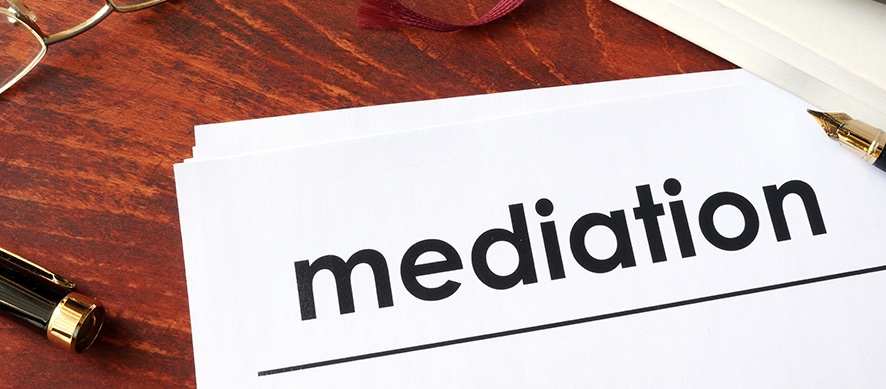Preparation Is Key To Mediation Success By Valentine Buoro
If you have by chance been a participant in any of the aforementioned types of mediation you will be in for a rude shock if your mediation turns out to be one of aggression, lack of empathy and a desire not to come to terms in whatever kind unless skilfully managed by all concerned.

Mediation is not a drive through service. You cannot just drive to the point of service where your much-desired refreshment is all-ready for pick up, at little or no waste of time. Curiously however, some persons still perceive it as such.
I once read an article on contemporary dispute resolution where the writer compared the processes of litigation and mediation to combat sports. In the write up, the writer compared mediation to a wrestling bout. He also said that getting into litigation was like getting into the boxing ring where two boxers attempt to beat each other silly. According to him, boxing allowed for some spare time to strategise on the next blow, as the boxer engages footwork and springs about the ring in the art of attack or defence. Although devastating hits can draw blood from the face of opponents, boxers have the ‘luxury’ of keeping opponents at a range before landing such blows. The writer likened the boxer’s footwork to the multiplicity of applications which allow litigation lawyers more time for research and introspection pending when trial proper begins.
Mediation on the other hand is akin to a wrestling bout. In his opinion, wrestling is intense, all engaging and gives no space between the fighters. Wrestling demands all of the wits of the wrestlers when they are in a firm grip of each other. Their raw strength and wits work simultaneously as each wrestler seeks to outwit the other and pin him down for victory. Although bleeding is a rarity in a wrestling match, spectators are never able to gauge the level of physical pain or injury of wrestlers as they are wont to spring to their feet when you think they are down and out.
Just like in wrestling, mediations can be intense and all engaging. Parties think on their feet as they do not have the luxury of drawing from precedents. In order to succeed at this, parties should have up-to-date information of the facts and the law relating to their issues. It is erroneous to think, as some people do, that law does not play a role in mediation. The first point of connect is that every dispute is founded on a legal wrong. You do not mediate a case where there is no wrong. What mediation provides is that you can resolve that legal wrong outside of the remedies the law has prescribed. You get the opportunity to figuratively be your own legislator and Judge.
It is quite an uphill task to convince people to drop their legal remedies and settle for what is of immediate or higher value and currency to both parties. The capacity to attain this is the product of professional skills and diligent preparation. Much damage is done to the opportunity mediation provides by counsel who do not prepare for mediation sessions. How many counsel know as of fact that what is referred to as the opening statement in a mediation can make or mar the entire process? The opening statement is an opportunity provided by the mediation procedure for parties to summarise the issues at stake, express how the issues have affected them and how they wish the process resolves the dispute. Simple as this may appear, choice of words, body language and indeed unspoken feelings of the party that presents this opening statement may well throw spanners into the wheel before the mediation commences.
There are no hard and fast rules of who should present the opening statement. Although it is best that the client presents it, a well-prepared counsel who knows the temperament of his client and his inability to clearly communicate will take on the role.
Some counsel take the liberty of not holding quality meetings with their clients in preparation for the mediation. This is particularly more so when they have information that the client has had prior attendance at mediation sessions. In that respect the counsel lets down his or her guard in the hope that the client is a pro.
Writing on mediation dynamics in a recently published article, Divorce Mediator Laurie Israel noted that sometimes mediations appear quite easy: “People are able sometimes to come to clear fair and amicable solutions with just a little guidance. In the divorce mediation context, these people are sometime so good- natured and harmonious that the mediator wonders why they are choosing to part ways.’’
If you have by chance been a participant in any of the aforementioned types of mediation you will be in for a rude shock if your mediation turns out to be one of aggression, lack of empathy and a desire not to come to terms in whatever kind unless skilfully managed by all concerned.

